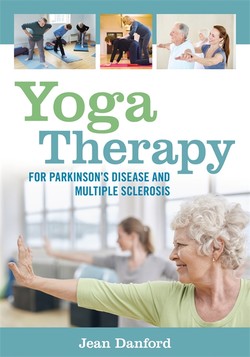Читать книгу Yoga Therapy for Parkinson's Disease and Multiple Sclerosis - Jean Danford - Страница 4
На сайте Литреса книга снята с продажи.
ОглавлениеPreface
At a small conference for people with Parkinson’s in our local area, all of the health professionals were in unison in promoting exercise as a way of maintaining health and quality of life for people with Parkinson’s, and the importance of relaxation and activities to help with stress levels and anxiety. Thus, at my ‘stall’ I had many visitors asking about yoga. They were eager to join a group and to begin to practise. Alas, my county is huge and mine is the only specialised class, miles away from most of the population. However, most were aware that there may be a yoga class nearby that they could join, and asked me whether that would that work for them. I had to hesitate, knowing the wide range of different types of yoga on offer, and questioning in my mind whether their particular yoga class in the village hall would be okay, whether the teacher would have the skills to adapt postures for them and to understand the condition enough to provide what they need.
I found myself saying ‘I would avoid Ashtanga, and Flow classes… Talk to the teacher first. Make sure that your teacher has a good yoga training.’ But what does that mean for the average member of the public, when there are so many training schools out there? Many yoga teachers have only done a limited amount of training with very little taught about modifying postures, or even safe practice.
There are many people out there longing to find out what yoga has to offer, and for whom a suitably adapted practice could bring many benefits.
I hope that this book will help yoga teachers to feel that they can teach people with Parkinson’s and welcome them into their groups. Many people with Parkinson’s avoid classes because they feel embarrassed when they can’t manage the posture, or they ‘freeze’ or shake, and yet with a little tact and sensitivity we can offer a different way and give that person a sense of achievement and belonging with the added benefit of increasing their quality of life. And it is a similar scenario for those with multiple sclerosis (MS).
